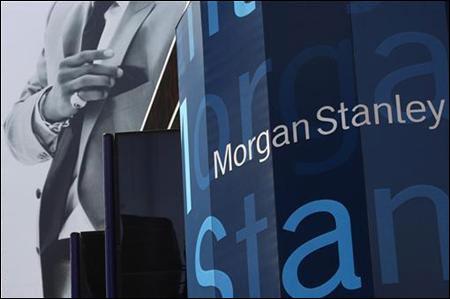Photographs: Reuters
Calling for immediate policy action by the government, it warned that in the absence of such a step the GDP growth could slide even deeper -- to 4.3 per cent in 2012-13.
The brokerage has also slashed the GDP growth forecast for 2013-14 to 6.1 per cent, from 6.6 per cent earlier.
"With continued deterioration in the macro environment, we are cutting our FY'2013 GDP growth forecast to 5.1 per cent and our FY'2014 forecast to 6.1 per cent," Morgan Stanley said.
"We believe there is an urgent need for policy action from the government to address the deterioration in the fiscal deficit and persistent pull-back in private investment," it added.
Click on NEXT for more...
Morgan Stanley lowers India's growth forecast to 5.1%
Photographs: Reuters
Morgan Stanley said that in the event of continued inaction from the government, it saw very high risk of a potential "deeper macro stress" scenario, that could entail further significant deceleration in GDP growth to 4.3 per cent in FY'13.
High fiscal deficit, coupled with strong rural wage growth and simultaneous decline in private investment, has brought a "stagflation-type environment" the report said.
Part of the cut in FY'13 estimate reflects the adverse impact of poor weather (lower than normal rainfall) on summer crop output, which typically accounts for about 7.5 per cent of GDP, Morgan Stanley said.
Click on NEXT for more...
Morgan Stanley lowers India's growth forecast to 5.1%
Photographs: Reuters
Its new projection is lower than such revisions last month by a host of global as well as domestic brokerage firms and financial services majors. Moody's, CLSA, Crisil, Citigroup among others have slashed India's growth forecast for this fiscal to about 5.5 per cent.
The growth rate in the first quarter (April-June), according to the data released by the government last Friday, slipped to 5.5 per cent, from 8 per cent in the same period last fiscal.
In its last quarterly monetary policy review, the Reserve Bank had lowered the economic growth projection for the current fiscal to 6.5 per cent from its earlier estimate of 7.3 per cent, stating that the rising government expenditure poses risks to economic stability.




article